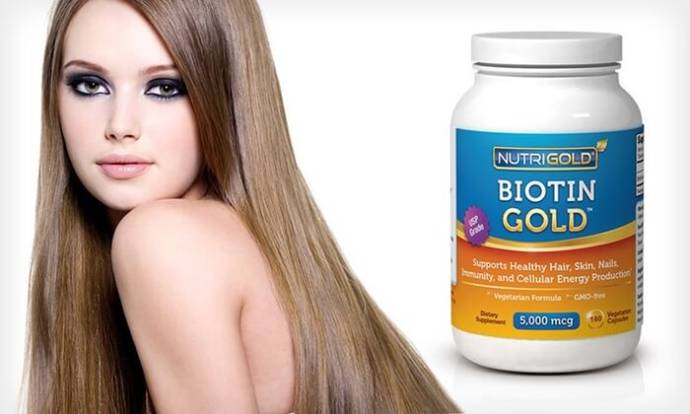Biotin, also known as Vitamin B7, is an important supplement for hair growth. The studies indicate that it helps in improving the hair health in people who are deficient with this vitamin. Generally recommended dose of biotin is 10 mcg to 30 mcg. Biotin should be taken exactly as prescribed by your healthcare provider because an excess of this vitamin may lead to various side effects.
Biotin effects on hair growth
Biotin supplement is quite common in the management of healthy hair. Although there is no controlled study which concludes that biotin supplementation in people already with an adequate amount of biotin, even then people are supplemented with biotin without analyzing the correct status of biotin. However, biotin supplementation is effective in patients suffering from hair problems, who have the deficiency of this vitamin. Following are the effects of biotin on hair health:
- Improves hair growth: Biotin increases the growth of the hair by increasing the synthesis of keratin. Keratin is essential for the formation of the hair follicle.
- Prevents hair loss: People suffering from hair loss can take advantage of biotin supplementation. It helps in reversing the hair loss.
- Increases blood circulation: Biotin improves the blood circulation towards hair and provides nutrition and oxygen to hairs to accelerate their growth.
- Maintains healthy scalp: Biotin is not only effective for normal skin, but it also improves the health of the scalp. Biotin supplementation manages itchy and irritated scalp.
- Maintain normal hair pigmentation: Biotin plays an important role in cellular growth. Low level of biotin leads to premature greying of hairs. Thus biotin supplementation is required to normalizing the hair pigmentation.
- Helps hair thickening: Biotin improves the blood circulation which results in increased flow of keratin and other essential nutrients leading to hair thickening.
Dose of biotin in hair growth
The dose of biotin depends upon age as well as the health status of the person. Further, biotin is of little use if the person suffering from poor hair health has a sufficient level of biotin in the body. So care should be taken to analyze the biotin level of the person before advising biotin supplementation. The average dose of biotin for an adult suffering from hair loss is 10 mcg to 30 mcg. However, in some conditions, doses as high as 100 mcg can also be recommended. It should be noted that there are various other ingredients along with biotin, whose deficiency may lead to hair loss. Thus, biotin alone may not be sufficient for regaining lost hairs. Along with biotin, supplementation with other deficient vitamins as well as a healthy diet is required for maintaining proper hair health.
Side effects of extra biotin dosage
Anything in excess leads to side effects. Similar is the case with biotin. Following are the side effects occurs when biotin is taken in excess:
- Skewed laboratory tests: The excess biotin interferes with the various laboratory testing such as thyroid profile and cardiac troponins and may give false results.
- Acne: Biotin increases the production of sebum that may cause acne.
- Pregnancy: Excess doses of biotin may increase the risk of miscarriage.
- Drug interaction: Biotin may interact with several drugs and may either increase their metabolism or reduce their absorption leading to substandard efficacy of the drug.
- Upset stomach: High quantity of biotin may result in an upset stomach. The patient may develop cramping and diarrhea.
- Alters blood sugar levels: Biotin increases the blood sugar levels leading to increased concentration of sugar in urine.
- Skin rashes: Biotin increases the incidence of inflamed vessels when taken in high amount. This may lead to itchy skin.
- Allergic reactions: Excess biotin may cause several reactions such as swelling, nausea, and rashes.
- Eosinophilic Pleuro-pericardial Effusion: Although very rare, but a high dose of biotin may lead to blood and air leaking in the pleural cavity.
- Respiratory conditions: As the excess biotin leads to allergic reactions, the inflammatory mediators generated may cause respiratory problems. It may cause tightness and pain in the chest.
- Increased frequency of urination: High dose of biotin increases the frequency of urination.
- Increased risk of pulmonary infection: The patient on supplementation with biotin, if also administered Vitamin B5, it may increase the risk of developing a pulmonary infection.





